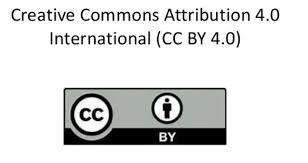Phytochemical analysis and antibacterial activity of organic extract of Catharanthus Roseus L. flower against gram-positive and gram-negative bacteria
DOI:
https://doi.org/10.47440/JAFE.2020.1413Keywords:
Antibacterial, Phytochemical, Antibiotics, Gram-positive, Gram-negative, Catharanthus roseusAbstract
Plant extracts especially medicinal plants used as alternative treatment due to minimal side effect and danger to human health. The present study focuses on the phytochemical analysis and antimicrobial properties of medicinally recognized known plant of Catharanthus roseus. In this research, the bioactive secondary metabolites and antimicrobial activities of organic extracts of C. roseus flowers parts were investigated. The phytochemical screening of both ethanol and ethyl acetate plant extracts revealed the presence of various secondary metabolites such as alkaloids, flavonoids, protein, phenol, saponins and other phytochemicals. However, agar well diffusion method was used for antimicrobial testing of organic extracts against multidrug resistant (MDR) foodborne Gram-positive (Staphylococcus hominis) and Gram- gative (Citrobacter freundii, Escherichia coli and Aeromonas caviae) bacteria. The study revealed that the flower extracts of C. roseus showed highest (15.5± 0.50 mm) antibacterial activity against Citrobacter freundii BTGE-K_4 but the lowest
(5.67± 0.58 mm) antibacterial activity against S hominis BTGE-K_11. Moreover, the lowest minimum inhibitory concentration (MIC) value was 125 μg/mL which showed against the tested MDR bacteria. Moreover, this study supports the importance of using medicinal plants as an alternative source for the treatment of bacterial diseases and other pharmaceutical purposes such as preservatives due to minor side effects, cost effectiveness and development of resistance to antibiotics.






 Publisher:
Publisher: 